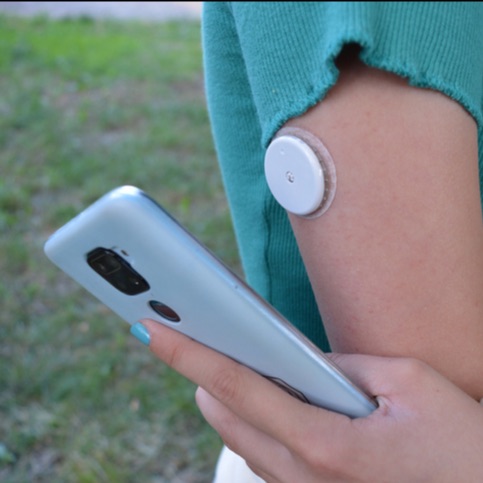Study Shows Using a CGM Reduced Hospitalizations
By Matthew Garza
 A study looked at diabetes-related hospitalizations in France before and after people started using a FreeStyle Libre continuous glucose monitor (CGM). Results showed that using a CGM could reduce the risk of being hospitalized, even after two years.
A study looked at diabetes-related hospitalizations in France before and after people started using a FreeStyle Libre continuous glucose monitor (CGM). Results showed that using a CGM could reduce the risk of being hospitalized, even after two years.
On May 23, 2022, Diabetes Technology & Therapeutics published results from the two year follow-up of the RELIEF study. Results demonstrated that use of the Freestyle Libre CGM could reduce the number of hospitalizations for certain diabetes-related complications.
What was the RELIEF study?
The RELIEF study looked at a French database of over 74,000 people with type 1 or type 2 diabetes who began using a Freestyle Libre continuous glucose monitor (CGM), after using traditional blood glucose monitoring with fingersticks and test strips for one year.
Researchers then analyzed these records to identify the number of hospitalizations for diabetic ketoacidosis (DKA), severe hypoglycemia, diabetes-related coma, and hyperglycemia over a period of 24 months; 12 months before and after starting a CGM. A subgroup of these individuals (over 31,000 people with type 1 diabetes and 4,000 people with type 2) were tracked for an additional 12 months after starting on a CGM, or for 36 months total.
What did the results show?
In the initial 24 month study (12 months before starting CGM and 12 months on CGM), using a CGM was associated with the following:
-
Hospitalizations for DKA, severe hypoglycemia, diabetes-related coma, and hyperglycemia fell by 49% for people with type 1 and 39% for people with type 2 diabetes.
-
DKA fell by 56% for people with type 1 and 52% for people with type 2 diabetes.
-
Diabetes-related comas fell by 40% for people with type 1 and 32% for people with type 2 diabetes.
-
Hospitalizations for hypoglycemia in those with type 2 diabetes fell by 11%.
-
Hospitalizations for hyperglycemia in those with type 2 diabetes fell by 27%.
Additionally, in results posted in late May 2022 from the extended subgroup with two years of CGM use, hospitalizations for DKA, severe hypoglycemia, diabetes-related coma, and hyperglycemia were reduced by 49% for those with type 1 and 48% for those with type 2. This was mostly driven by a reduction in DKA hospitalizations for both groups.
After one year, 98.1% of people included in the study were still using the CGM system. After two years, this number was at 88%.
Why is CGM research important?
The ADA Standards of Care states that all people with diabetes, regardless of type or age, should be offered a CGM if they are on multiple daily injections of insulin (MDI) or an insulin pump. Many recent studies also have highlighted the potential benefits of CGM for people on non-insulin therapies. Some of these benefits include reductions in A1C, fewer diabetes-related events, and fewer hospital visits.
CGMs are a powerful tool for people with diabetes. They give people access to a wealth of glucose data – including Time in Range metrics – that can help people adjust and improve their daily management.
The RELIEF study shows an association between the use of CGM and a reduction in the number of hospitalizations for people with diabetes, vital evidence demonstrating the benefits of CGM and Time in Range. These metrics can help to inform a more person-centered approach to diabetes care that gives people the information they need to better protect themselves against diabetes-related events.
This research also suggests that CGM use could potentially reduce healthcare spending and conserve hospital resources by preventing these costly events. In fact, additional research published in May 2022 showed that the use of a Dexcom CGM in almost 600 people with type 2 diabetes reduced healthcare spending by hundreds of dollars per person. This was driven by reductions in inpatient healthcare costs, fewer outpatient hospital visits, and fewer days spent within the hospital.
To better help people with diabetes manage their condition on a day-to-day basis, it’s important that people have access to this technology and the wealth of data it can provide.
To learn more about CGMs, check out our resource guide on the subject.








